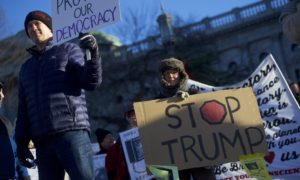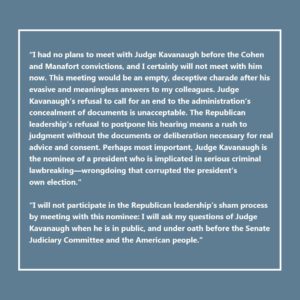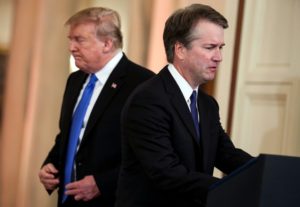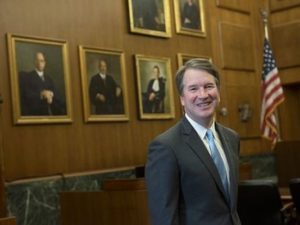Brett Kavanaugh is likely to be confirmed by the U.S. Senate to become a justice on the Supreme Court.
Is he the kind of judge I want on the court? No. But here’s the deal, and I take no pleasure in acknowledging this: Donald Trump is the president of the United States; he was elected in 2016 by winning enough electoral votes to take the nation’s highest office; he gets to nominate individuals to the high court.
Elections have consequences. Of that there can be no doubt.
Kavanaugh is qualified to serve. I heard much of the Senate Judiciary Committee hearing. I listened to Democrats try to trap him into saying something he shouldn’t say. Kavanaugh didn’t take the bait.
I am deeply troubled that the president would declare his intention to nominate someone who would vote to overturn Roe v. Wade, the 1973 landmark ruling that legalized abortion. Tradition usually dictates that presidents not set pre-determined parameters for who gets nominated. This one, though, busted that tradition to pieces.
So, the court will have an even stronger conservative majority if Kavanaugh gets confirmed. I wish it weren’t so. But it appears set to occur.
We’re about to reap the consequence of the 2016 presidential election in a big way. That’s how the system works. I accept the process that has brought us to this point. That doesn’t mean I like it. Far from it.





